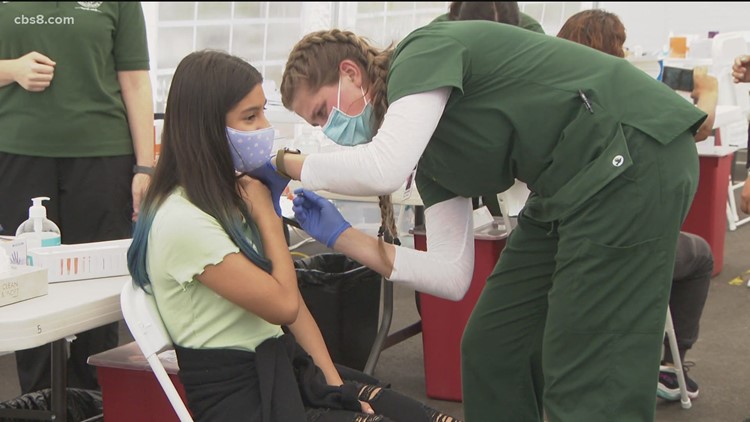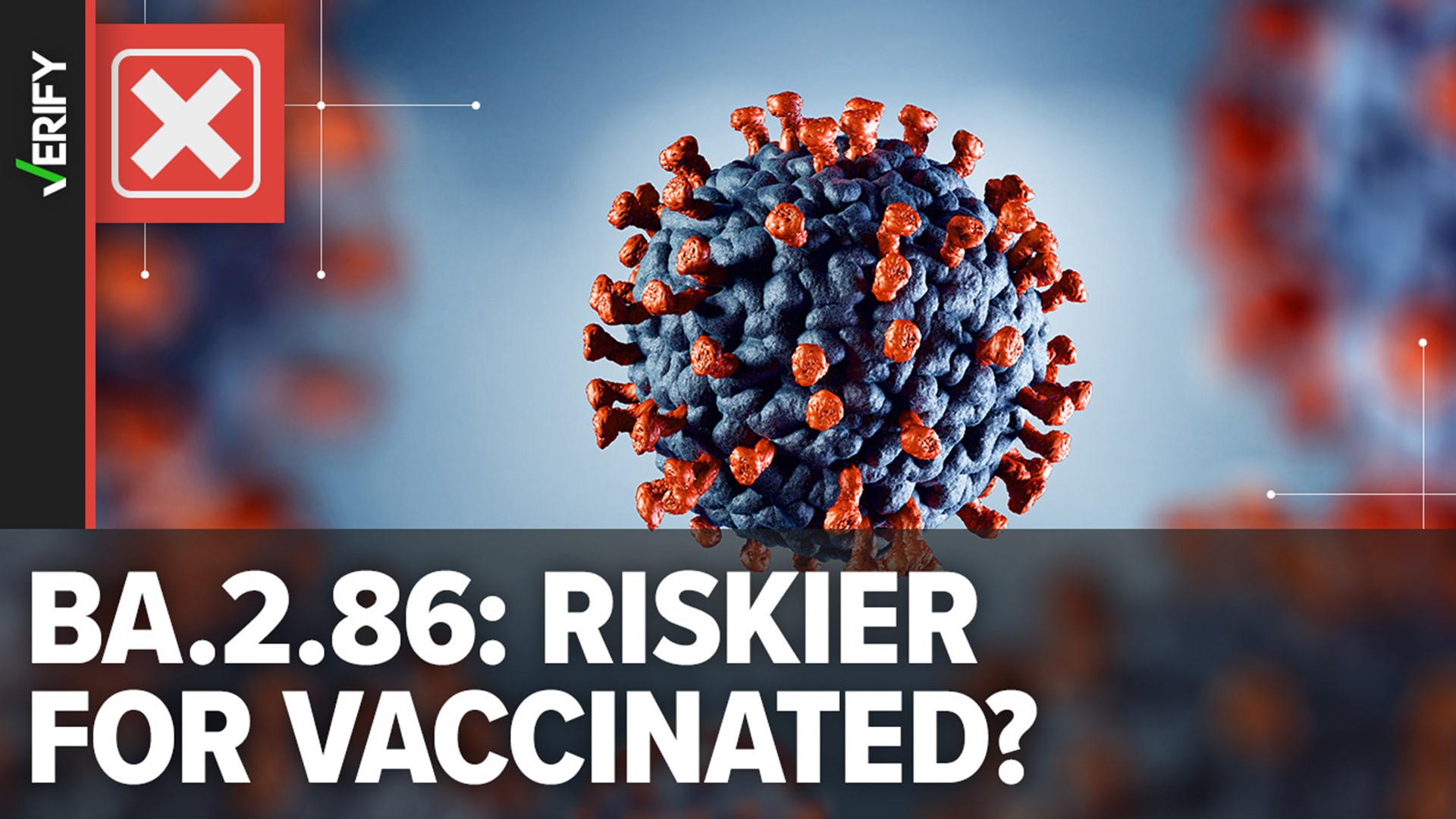SAN DIEGO — Residents living in the East County region are getting vaccinated for COVID-19 at a lower rate then their South Bay counterparts, San Diego County data shows.
Researchers and community leaders interviewed by News 8 suggest resources, time and political affiliation are to blame for the discrepancy.
The gap in vaccination rates depending on geographical location is stretched even farther when adding age into the mix.
Data as recent as August 25 shows 51% of East County children ages 12-17 have had at least one dose of the COVID vaccine. 91% of children of that same age range, who live in the South Bay, have had at least one dose of the vaccine.
The lack of vaccines in East County has parents and community organizers taking action, especially with many children returning to in-person learning this August.
"I am concerned my children will miss out on school another year [if] cases start rising in school populations because of all the unvaccinated children," said Santee resident Tara Olin, who has two children, one attending Santana High School.
With the Delta variant on the rise, the United States is seeing a wave of children hospitalizations higher than adults. This is partly due to children under 12 not being vaccinated and the return of in-person school.
According to the CDC, the current rate of children hospitalized for COVID-19 is comparable to levels reported in late January 2021. In contrast, the current hospitalization rate for adults over 65 is around the levels reported in April 2021.
And due to the rising Delta variant and increased hospitalizations, San Diego Unified School District is requiring masks both indoors and outdoors when children are present.
Olin said misinformation dominates vaccine hesitancy, and it's parents who are driving the decision for their vaccine-eligible children not to be vaccinated.
"[My children] have friends who want the vaccine but their parents are Trump supporters or believe in all the propaganda and wouldn't let their kids get vaccinated," Olin said.
Olin's claims may not be far off from the truth.
Not only is East County's congressional district a republican stronghold, voting for a Republican president every election since 2008, a study by UC San Diego shows vaccine hesitancy varies greatly by political ideology.
The study performed earlier this year surveyed more than a thousand respondents and found people who identify as Republican became more skeptical of COVID-19 vaccinations over the course of the pandemic compared to their Democrat counterparts.
The study also found Republicans perceived the virus itself as less threatening compared to Democrats. The study found the gaps between Republicans and Democrats grew over the course of 2020.
"We believe that perceptions of threat play into a willingness to get the vaccine," said Ariel Fridman, a doctorate candidate at UCSD who led the research into this study.
"It's possible that different news sources consumed by Democrats and Republicans may play into different perceptions of threat associated with COVID-19."
The issue isn't solely due to political hesitancy toward vaccines, according to organizers of Champions for Health, a San Diego based foundation aimed at bringing health resources to underserved communities.
"It's a combination of their access, whether it's their transportation, or language or even knowing where to go to get vaccinated. It could also do with timing and scheduling because of multiple jobs and where they work," said Adama Dyoniziak, the executive director for Champions for Health. "it could be misinformation, it could be vaccine hesitancy."
Champions for Health has been an approved vaccine provider since January, and has been on the ground since COVID-19 vaccinations gained emergency authorization, administered more than 20,000 doses of the coronavirus vaccine.
Fridman said his research can help direct resources to communities that need vaccines and vaccine education.
Directing resources is what Champions for Health said its doing. Dyoniziak says the efforts are now being concentrated in East and North county, spearheaded by Andrew Gonzalez, director of community health.
"While the numbers may not show that the vaccination rates are high, the partners were not idle," said Gonzalez. "They were really trying to figure out how we can get access to those communities."
Andrew said Champions for Health works with Live Well San Diego and its Speaker's Bureau to bring education to communities that may harbor vaccine hesitancy or misinformation.
Gonzalez and Dyoniziak told News 8 seeing relevant vaccine data can help the organization learn what's worked with communities with high vaccination rates.
"I don't know if its so much priorities have shifted, it's more like 'we see a gap, let's try to fill gaps in the priority index zip codes,'" Dyoniziak said.
She said the organization has always looked for ways to bring health education to underserved communities, and now with COVID-19 vaccine in full deployment, the focus should be on improving low-vaccinated areas.
"I would say if there is a gap, let's move forward and fill the gap," Dyoniziak said.
While the effort to vaccinate more residents continues, Olin said vaccine hesitancy toward COVID-19 vaccines is unwarranted.
"It seems they have no scientific or health basis - it's a political decision," Olin said, who's other child is a fully vaccinated middle schooler. "Some of these people vaccinated their children against chicken pox, measles etc. and even got flu shots before but wont get this vaccine."
WATCH: More teens are getting vaccinated as eligibility for children 12 and older opens up:



